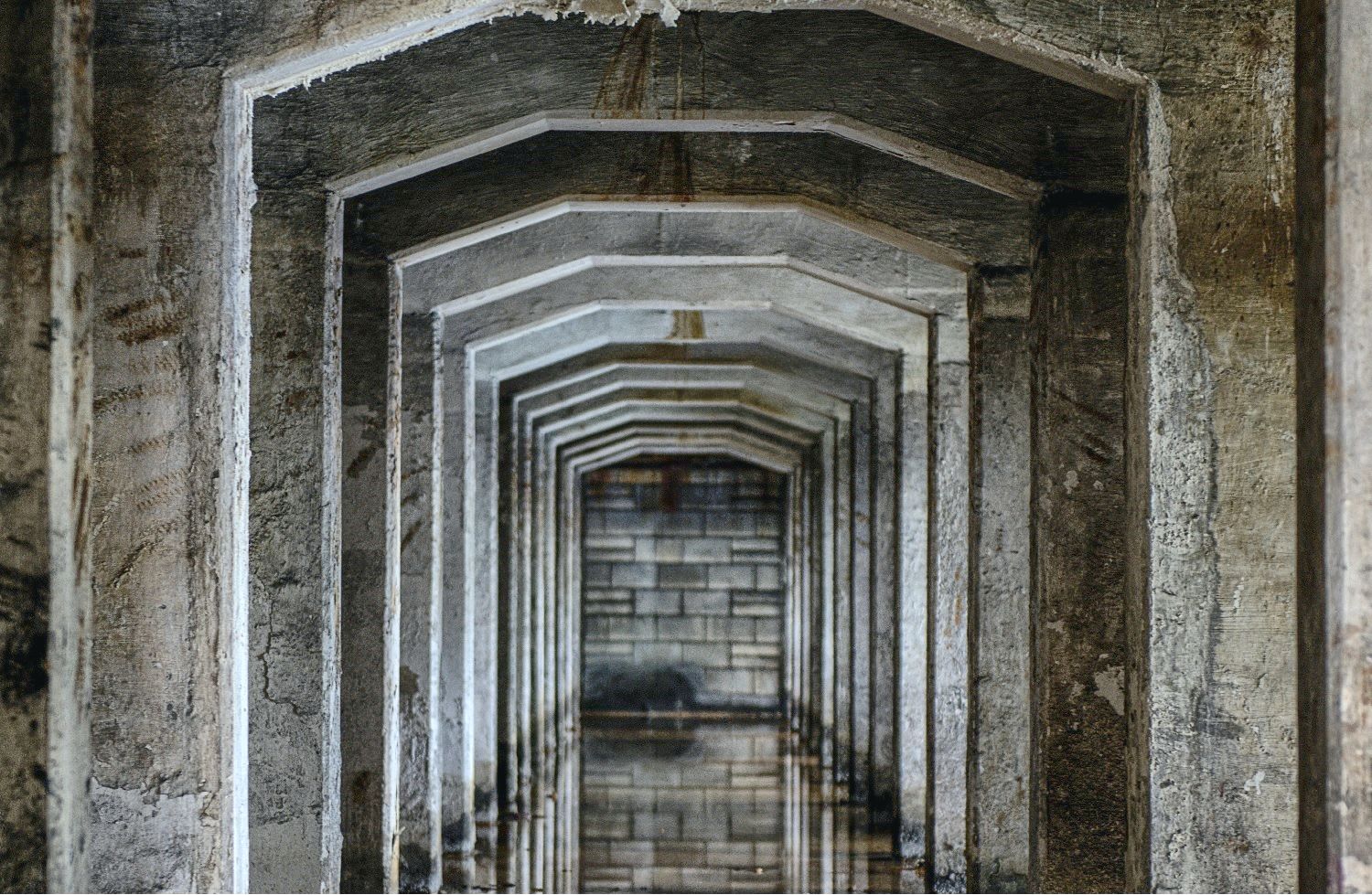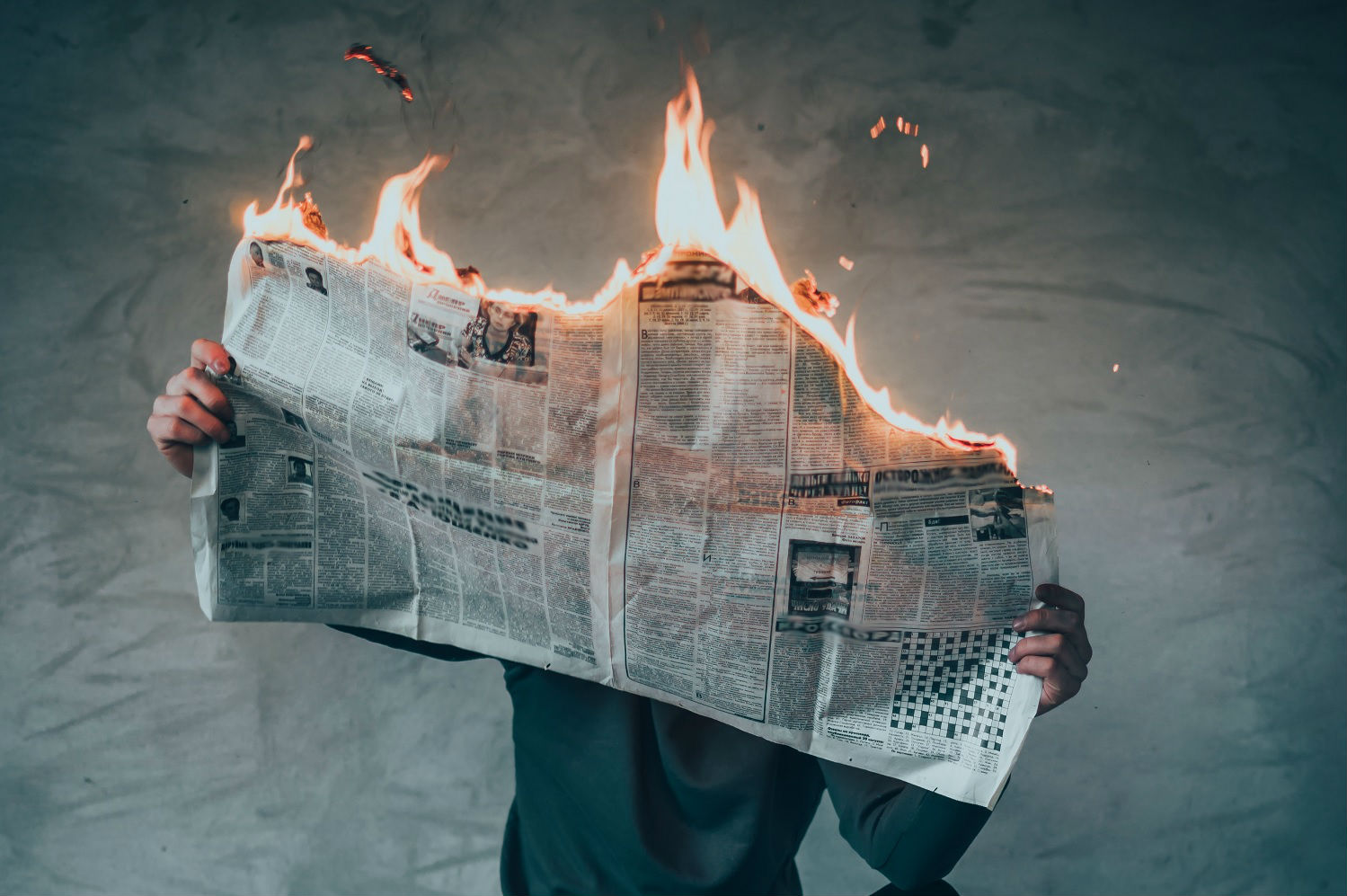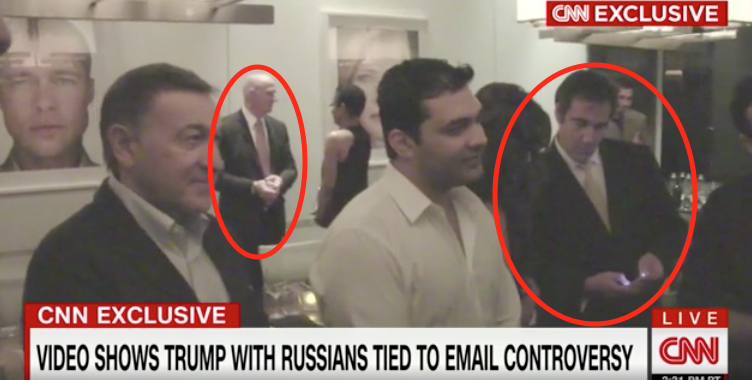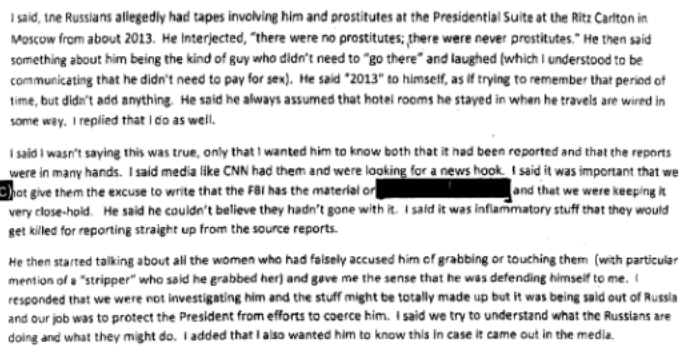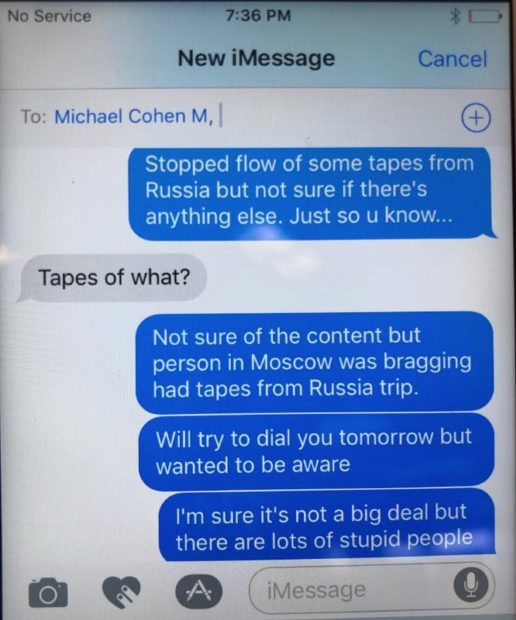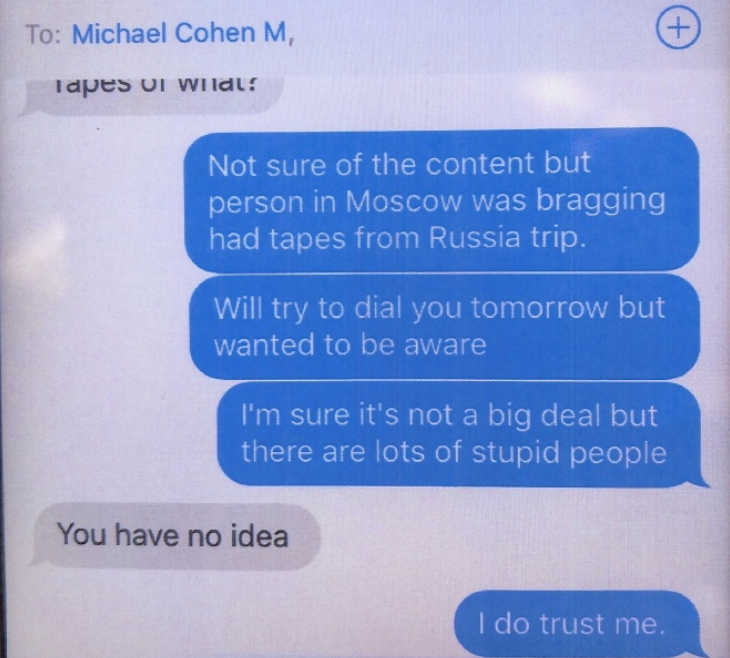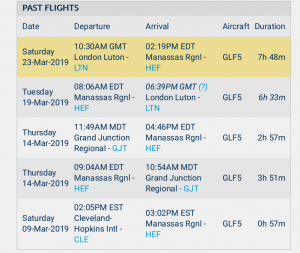While we have been talking about how good and done Robert Meuller’s investigation is, a slew of filings and other reports relating to Roger Stone in the last few days remind us that the fruits of his investigation are definitely not done.
Roger Stone’s cry for help
As background, consider this cry for help, in a local, as opposed to the kind of national media outlets that had recently hung on Roger’s every word. In it, he describes the burden of spending all his money on defense attorneys.
“The worst part of this is being broke,” he said on the SiriusXM program that airs weekdays on the Faction Talk channel 103.
“I’ve lost my home, my insurance, what little savings I had, my ability to make a living because people pay me to write and talk, and of course the things they want me to write and talk about are the very things I’m not allowed to talk and write about. In the blink of an eye you can lose everything.
“I have to pay everything I have to lawyers. And I could no longer pay the rent in the property that I was in. I moved from a nine-bedroom house to a one-bedroom apartment. Had to do the move myself with my wife renting a truck. On the last day of the move in kind of a freak accident the truck slips out of gear and rolls over my wife’s ankle, breaking it.”
More interestingly, Stone claims he hasn’t spoken with Donald Trump for almost two years (he doesn’t say whether his attorneys have spoken to Trump’s attorneys).
“I’ve known him for 40 years. We’re very good friends. I don’t agree with everything he does, I agree with a lot of what he does,” Stone said. Stone said Trump was at his wedding, and he at two of Trump’s weddings; he was at the funerals for Trump’s parents, and is friendly with his sister. “I do miss him.”
He also complains that Alex Jones is not selling T-shirts for him.
“I am grateful for Alex Jones for giving me a platform. He is a friend of mine. I like the guy, I like hanging out with him. I do not agree with everything he says, I agree with some of the things he says. He probably doesn’t agree with everything I say. But you know, the check would be nice.”
While I’m sure Stone exaggerates his financial straits, I’m also sure they’re considerable. These two specific calls for help, though (especially in the wake of allegations that InfoWars may have been providing hush money to Jerome Corsi), are especially interesting.
Stone’s throw of the dice
Meanwhile, the lawyers that are bankrupting Stone have been busy, filing six challenges to his indictment last night, several of them meritorious, the others not. The motions include:
- A bid to throw out the prosecution on several grounds designed to appeal to William Barr’s prejudices
- A demand for the full Mueller report based on some specious (appeals to Bill Barr) and some justified bases (prosecutorial decisions on Jerome Corsi and Randy Credico)
- A motion to enjoin his prosecution based on a claim that Congress hadn’t funded this Special Counsel investigation
- A motion to dismiss based on the claim that Mueller violated separation of powers by charging him for lying to HPSCI without a formal referral
- A request for discovery to support a selective prosecution claimed designed, in large part, to accuse Randy Credico of lying to the grand jury
- A renewed objection to having his case judged by Amy Berman Jackson along with the GRU hackers
He seems to be pursuing several strategies (beyond just throwing a bunch of spaghetti against the wall).
Embarrass Credico
The first is to use the motions process to discredit the witnesses against him. That’s most true of a passage of his selective prosecution motion that accuses Credico of lying to the grand jury.
Another witness, Randy Credico lied about speaking to Assange and Assange’s lawyer to federal agents. It is curious that the Special Counsel found one aspect of Credico’s interactions with Stone so compelling that it made its way into Stone’s Indictment. In Paragraph 14(e) of the Indictment, the Special Counsel quotes the conversation between Stone and Credico from Credico’s radio show of August 23, 2016. Stone and Credico have a discussion regarding communications with the “head of Organization 1.” Yet, astonishingly, in Credico’s testimony to the Grand Jury (DOJ-3500-RC-000111) Transcript Page 44, Lines 7-22, Credico tells the Grand Jury that on the very show they quote, Stone and Credico never discussed the head of Organization 1. For unknown reasons and the precise reason why discovery is mandated in these situations, the Special Counsel elected not to charge Credico with lying to the Grand Jury, something expressly within their regulatory authority.
Later in his testimony, Credico says that prior to his interview with presidential candidate Gary Johnson on September 10, 2016, that he had never spoken to Stone about WikiLeaks or Assange.3 This is a demonstrated lie as according to the text messages between Stone and Credico that Stone voluntarily released, and the Special Counsel possessed. As early as August 19, 2016, Credico was bragging to Stone that he had a connection to Assange and that it was through Margaret Kunstler, Esq., an attorney represented to be on Julian Assange’s legal team. There is no indication based on the initial review of discovery provided by the government that the Grand Jury was ever informed of Credico’s lies regarding the August 23d radio interview.
It’s unclear whether Stone’s representation of Credico’s grand jury testimony is fair. But if it is, the selective prosecution claim provides a way to discredit Credico.
Appeal to Barr and Trump
Then there’s a series of arguments that appear to be an attempt to appeal to Bill Barr’s prejudices, and through him, Trump. There’s the separation of powers argument about the lack of a criminal referral that suggests — incorrectly — that Mueller would have needed to rely on Adam Schiff’s testimony to assess whether and how Stone lied in his testimony (as a matter of courtesy, HPSCI shared informal copies of the transcripts with the IC) and claims — probably ridiculously — that an equivalent example of Barr’s contention that the president can’t be guilty of obstruction without committing the underlying crime is also true for the President’s rat-fucker. Stone repeats this argument in his demand for the full Mueller report, claiming that it will show there was no “collusion,” which therefore means he couldn’t obstruct anything.
The most novel of these arguments, however, is that the President — and his campaign from before he was elected!! — can’t be investigated under the Take Care Clause. This is mostly bullshit, a dime store version of Bill Barr’s own opininion excusing many kinds of obstruction for the President. Trump will like it best where Stone argued that investigating all links with Russia inhibited Trump’s ability to conduct foreign policy.
The Mueller Appointment grants the Special Counsel the authority to investigate “any links and/or coordination between the Russian government and individuals associated with the campaign of President Donald Trump.” Accordingly, every action taken by President Trump since he formed his campaign with regard to the United States’ relationship with Russia has been second guessed as evidence of “collusion,” or a conspiracy between Trump and Putin.20 Many have asserted that Putin has some form of control over Trump.21 The Special Counsel investigation has stimulated this second guessing, significantly undermining the President’s ability to conduct foreign policy with regard to Russia. The Special Counsel investigation hog-ties the President in the execution of his foreign policy.
The Mueller Appointment not only hobbles the President’s ability to conduct a rational foreign policy with regard to Russia, it undermines his ability to deal with every world leader. No President can deal effectively with the heads of other nations when he is the subject of a Department of Justice investigation that is prominently being portrayed in the press as imminently removing him from office. Counterparts will be inhibited in reliance on a President who may not serve out his term
This is bait for the frothy right. More importantly, it treats Roger Stone as the President for investigative purposes when according to both him and the President he wasn’t even formally part of the campaign for the key periods under investigation.
This is mostly spaghetti throwing for the frothy right, but there’s no telling what will happen if some of the nuttier GOP judges latch on to one of these strands of spaghetti.
Engage in graymail
Stone repeats his demand for the full Mueller report in several ways — first in a bid for the report itself, then as the “prologue” to a bunch of mostly spurious attacks on Mueller’s authority (some of which have already been rejected in the larger Mueller investigation). This is graymail. Of course Stone is not going to get the full report, which includes grand jury material unrelated to his prosecution and descriptions of ongoing investigations likewise unrelated to his prosecution. But he probably does have a good case to claim that he should get the parts that will be redacted for us that pertain to him.
Misstate Barr’s citation of Mueller’s findings
I’m perhaps most interested in the way Stone engages in Russian hack trutherism. For example, his first justification for needing the full Mueller report — even before he claims to need to know why Credico and Corsi weren’t charged — is to understand Mueller’s “assumption” that Russia hacked the Democrats (something that Stone himself admitted until August 2016, when it became inconvenient).
His lawyers must be allowed to review the Report in its entirety because it contains the government’s evidence and conclusions on matters essential to Stone’s defense. Starting with the base assumptions by the Special Counsel that Russians hacked the Democratic National Committee, Democratic Congressional Campaign Committee, and Clinton Campaign email databases (see Indictment, ¶¶ 1-3, 7, 18, 20, 39);
And in Stone’s bid to get his case reassigned, he makes several misrepresentations of the public record. For example, he claims Barr’s representation of Mueller’s finding said there was no evidence of “collusion” between Trump’s associates and Russia.
The Office of the Special Counsel has since concluded its investigation and has found that there is no evidence of collusion between Russia and those associated with the presidential campaign of Donald J. Trump.
Barr addressed only conspiracy and coordination, and all the language is consistent with Mueller not finding enough evidence to charge it, while finding some evidence.
Stone also claims that prosecutors have claimed that his case is associated with the GRU indictment only because communications between Stone and Guccifer 2.0 were obtained with the GRU warrants.
Previously, however, opposing counsel designated this case as related to that of United States of America v. Netyksho, et al. (1:18-cr-00215-ABJ), because the government claimed that communications between Guccifer 2.0 and Stone were obtained from the Netyksho search warrant.
If they said specifically that, then it was in private. In public, the government said this:
The defendant’s false statements did not arise in a vacuum: they were made in the course of an investigation into possible links between Russian individuals (including the Netyksho defendants), individuals associated with the dumping of materials (including Organization 1), and U.S. persons (including the defendant).
[snip]
In the course of investigating that activity, the government obtained and executed dozens of search warrants on various accounts used to facilitate the transfer of stolen documents for release, as well as to discuss the timing and promotion of their release. Several of those search warrants were executed on accounts that contained Stone’s communications with Guccifer 2.0 and with Organization 1.
Even ignoring that Stone seems to cede that at least one of the number of warrants referred to in that filing included his communications with Guccifer 2.0, it’s even more amusing that Stone ignores WikiLeaks — I wonder if they took it out after Julian Assange got arrested?
Stone then misstates another thing Barr said, claiming he claimed no American citizens conspired with “Russian agents.”
[T]he Department of Justice has concluded that there was no conspiracy between Russian agents and any American citizen, including Roger Stone, this “connection” is unsubstantiated.
What the Barr memo actually says about the hack-and-leak operation is,
Special Counsel did not find that the Trump campaign, or anyone associated with it, conspired or coordinated with the Russian government in these efforts, despite multiple offers from Russian-affiliated individuals to assist the Trump campaign.
Barr’s statement only refers to the Russian government, not possible Russian cut-outs like WikiLeaks, and only discusses Americans with ties to Trump.
Stone then claims that the GRU indictment claims no American was part of the conspiracy.
Additionally, the only document filed in Netyksho, the Indictment, states no American was part of the conspiracy charged. There is nothing left to “connect” Roger Stone to.
It doesn’t name any Americans, but also doesn’t say no Americans were part of the conspiracy. Here’s what it says about the conspirators.
[The defendants] were GRU officers who knowingly and intentionally conspired with each other, and with persons known and unknown to the Grand Jury (collectively the “Conspirators”),
Stone’s effort to get a new judge is not going to work in any case. Which leads me to wonder why he repeatedly misstates the public record.
In any case, assuming normal judicial review, Stone’s request for more of the Mueller report might have promise and he could get some thoughtful briefing on a few of the other claims. But most of this is wall-splat for specific audiences: Trump, Barr, and the frothy right.
Andrew Miller claims he has been mooted
Meanwhile, as expected, Stone associate Andrew Miller just requested an en banc review of the DC Circuit ruling that he needs to testify against Stone. Along with the arguments he already lost on, he is now asking the court to find out whether the government really still needs his testimony, arguing (in part) that Mueller’s authority has expired.
Since the subpoena issued to Mr. Miller was for the purpose of obtaining evidence related to Mr. Stone’s connection with WikiLeaks, Julian Assange, and Guccifer 2.0, it would appear that the Special Counsel would no longer need Mr. Miller’s testimony regarding that subject matter. Nevertheless, the next business day, Monday, January 28, 2019, undersigned counsel was advised by the Special Counsel’s office that it believed the case to be a live controversy since the grand jury was still active, though it was not apparent whether the grand jury or its foreperson was consulted as to any continued interest in hearing Mr. Miller’s testimony. 3
On March 22, 2019, Special Counsel submitted his final report to Attorney General Barr pursuant to the Special Counsel regulations, 28 C.F.R. 600.8(c), concluding his investigation, explaining his prosecutions and declinations, and finding that no conspiracy or coordination took place between the Trump campaign or any aides associated with the campaign and Russia regarding interference with the 2016 campaign or hacking the emails of Hillary Clinton or the DNC. 4 No further indictments are expected. According to Justice Department spokesperson Kerri Kupec, “The investigation is complete.”5 Thus, like Cinderella’s carriage that turned into a pumpkin at midnight, Special Counsel Mueller’s authority expired. Accordingly, the intervening events described above that have occurred since the issuance of the subpoena in question over nine months ago, strongly, if not definitively, demonstrate Mr. Miller’s testimony regarding Mr. Stone is no longer required nor can be legally obtained. Thus, this Court should invite the government’s views to verify whether this case continues to be a live controversy or is moot to assure itself that it continues to possess judicial power to adjudicate the instant petition for rehearing and suggestion for rehearing en banc and any subsequent action in this appeal
3 Notably, while the mandate was stayed as is the usual practice until 7 days after the time for the filing a petition for rehearing had expired or after disposition of any timely filed petition (45 days from the decision, or April 12), the Special Counsel had the right to ask the Court to issue the mandate ever since February 26 if Mr. Miller’s testimony was needed. The Special Counsel declined to do so. [my emphasis]
This is really just decoration on an en banc review that will be denied, but along the way he’s fishing for information about where else prosecutors (including the DC AUSAs who’ve been involved since Stone’s indictment, at least) are headed.
Mueller may be done but prosecutors are not
Which brings us, finally, to this response from prosecutors (signed by two DC AUSAs, Jonathan Kravis and Michael Marando, from the Stone team and Aaron Zelinsky from the Mueller team) in response to what is fairly characterized as a media request for all outstanding warrant materials in the Mueller investigation, with a focus on Stone. After getting two extensions, one because the attorneys involved in it were involved in a press of other work, one to transition to the DC AUSAs who’d take over because Mueller was done, the government today issued a narrowly targeted (to Stone) response.
After introducing the scope of the investigation as it proceeded from Comey’s March 20, 2017 scope to Mueller’s May 17, 2017 scope to his March 22, 2019 closure, the government response then stated the media request in remarkably narrow terms, focused just on Stone.
The movants seek to unseal search warrant materials related to the Stone prosecution. Specifically, the movants seek unsealing of “warrants, applications, supporting affidavits, and returns relating to all search or seizure warrants relevant to the prosecution of Roger J. Stone, Jr.” Doc. 4, at 2 (Order) (quoting Media Coalition Mem. 1). 2 It is unclear whether the movant’s request is limited to warrants issued pursuant to Rule 41 or also includes warrants under the SCA. In an abundance of caution, the government is treating the request as covering both categories. It is similarly unclear whether the reference to “warrants relevant to the Prosecution of Roger J. Stone, Jr.” means only warrants to search Stone’s property and facilities or includes other warrants that were executed as part of the same line of investigation. Again, in an abundance of caution, the government is treating the request as covering both categories.3
2 In places, the movant more broadly references warrant materials pertaining to “the Russia investigation” (Mot. 1, 4; Mem. 4) and once references “Manafort records” (Mot. 3). Consistent with this Court’s March 1, 2019 order (Doc. 4, at 2), and the movants’ detailed description of the records sought, see Mem. 4-5, the government understands those references as context for this specific request to unseal records related to the prosecution of Stone. See Mot. 1, 3, 4; Mem. 1, 4, 5.
Yes, it makes a big show of interpreting the media request broadly to interpret the request as both a request for Rule 41 and Stored Communication Act warrants and both Stone’s property and others (though again, they remarkably blow off all requests for anyone but Stone). But then they get to footnote 3, which reveals that there were warrants targeting entirely different people that ended up “merely happen[ing] to yield evidence that concerns Stone.”
3 The government does not understand the request to include warrants that were not related to Stone or that line of investigation but that merely happened to yield evidence that concerns Stone and is being provided to him in discovery.
This is a fairly remarkable disclosure, that the government obtained warrants thinking they were getting one thing that “merely happened to yield evidence that concerns Stone.” Particularly when you consider the earlier discussion of the “multiple lines” of Mueller’s investigation, some of which have been spun off.
The Special Counsel’s investigation has involved multiple lines of inquiry. Many have been handled in the Special Counsel’s Office. But the Special Counsel has also referred a number of matters to other offices in the government for investigation.
[snip]
On March 22, 2019, the Special Counsel notified the Attorney General that he had completed his investigation into Russian interference in the 2016 presidential election. The Special Counsel, however, referred a number of matters to other offices in the Department of Justice. Those matters remain ongoing.
The filing claims, again, that this is an ongoing investigation, with stuff still being handled by “other offices and entities,” plural,
As explained, although the Special Counsel has concluded his work, the Special Counsel referred a number of matters that are ongoing and are being handled by other offices and entities. Disclosure of the warrant materials threatens the harms that courts have catalogued in holding that the First Amendment provides no right of access to search warrant materials in ongoing investigations.
Nor would it make sense to recognize a right of access automatically once any indictment has been returned. In complex investigations, such as this one, where a single warrant may have relevance to interconnected lines of investigation, that test would fail to take into account tangible investigative harms from disclosure. An indictment does not end an overall investigation, for example, when a defendant is potentially involved in activities with other subjects or targets, and the warrant in question seeks evidence bearing on that joint activity, but the defendant has been charged only with a subset of his conduct under investigation. The probability of a continuing investigation post-indictment grows when the search targets are linked to other persons of interest by ties to a single organization, common associates, or coordinated activities. Disclosure of warrant materials could reveal sources, methods, factual and legal theories, and lines of investigation extending beyond the charged conduct.
It suggests a “single warrant may have relevance to interconnected lines of investigation” (I assume those targeting Rick Gates are one example), then specifically says an indictment, like that targeting Stone, “does not end an overall investigation” perhaps because the “defendant has been charged only with a subset of his conduct under investigation” and he “is potentially involved in activities with other subjects or targets … linked to other persons of interest by ties to a single organization, common associates, or coordinated activities.”
As I disclosed last July, I provided information to the FBI on issues related to the Mueller investigation, so I’m going to include disclosure statements on Mueller investigation posts from here on out. I will include the disclosure whether or not the stuff I shared with the FBI pertains to the subject of the post.

